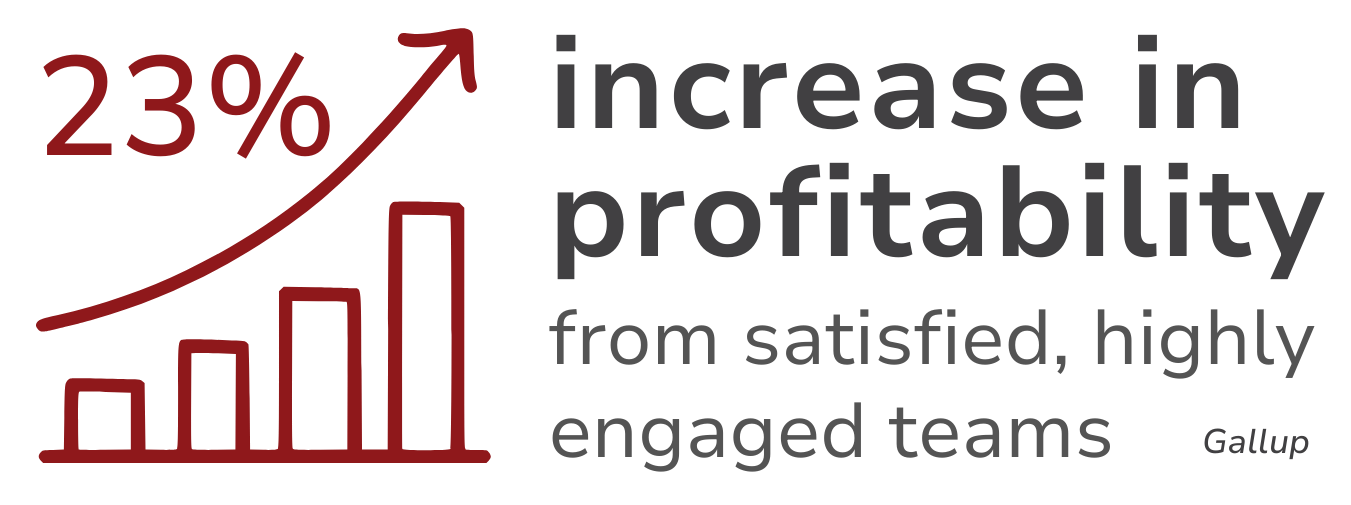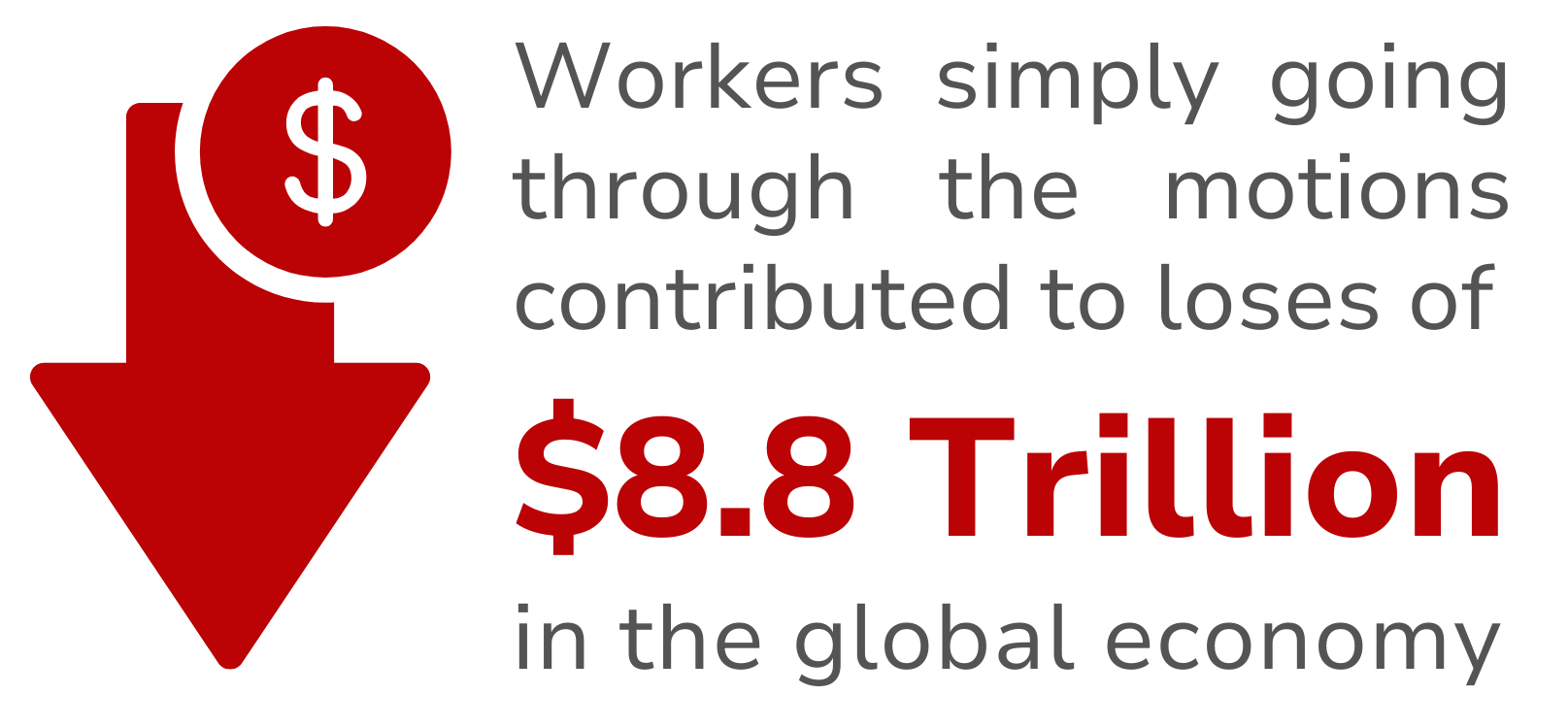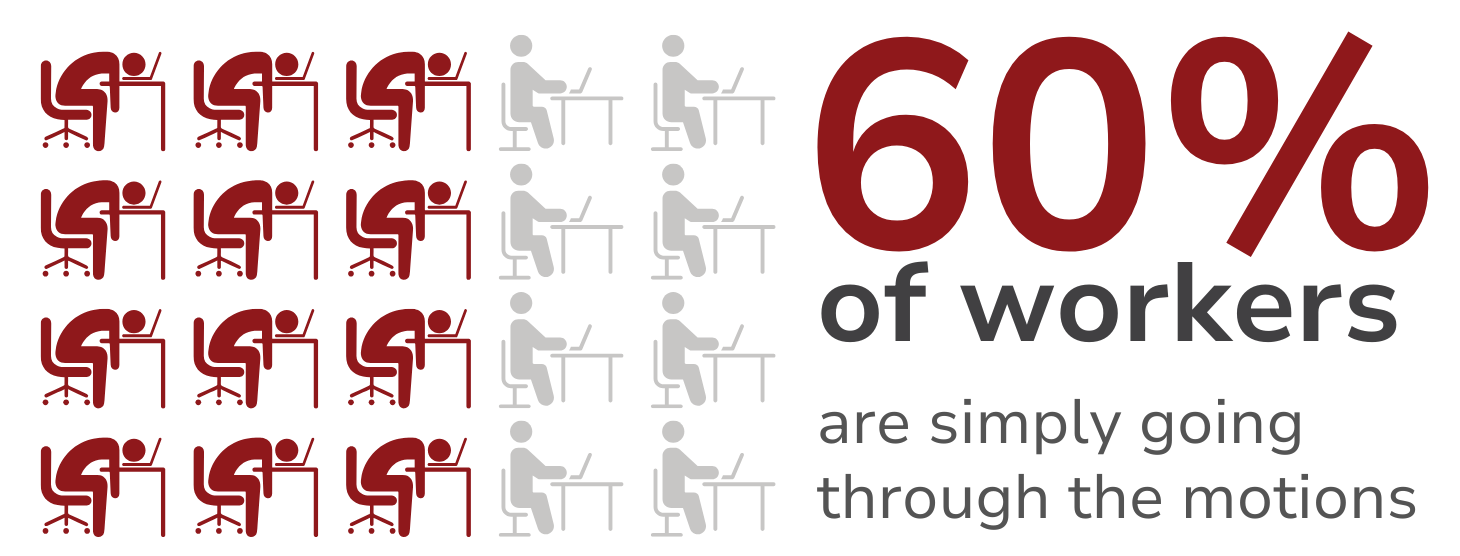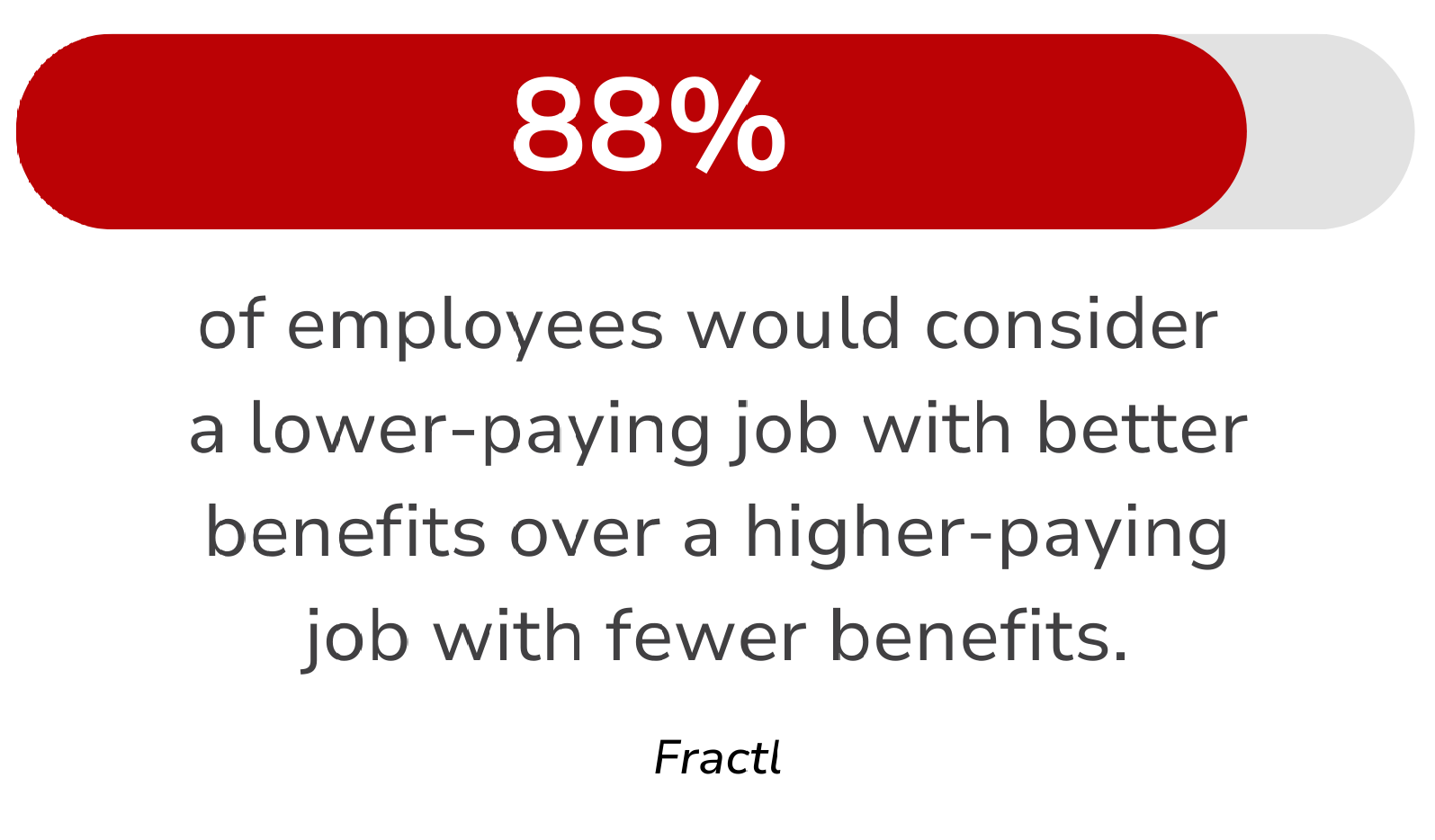How Employee Benefits Influence Company Morale and Productivity
Are you struggling to find ways to improve your team’s productivity? Or does your team’s morale need a boost? You might be surprised to know that implementing an employee benefits program could be one of the most effective ways to achieve those goals.

In This Article
Providing the right benefits does more than just support employees’ well-being—it actively drives morale and improves productivity. In fact, Gallup’s State of the Global Workplace: 2024 Report found that highly engaged teams experience a 23% increase in organizational profitability, showing how critical employee satisfaction is to a company’s success.

Traditional raises simply aren’t enough to keep employees satisfied, in fact 88% of employees say that they would give a lower paying job with better health, dental, and vision insurance “some consideration” or “heavy consideration” over a higher paying job with fewer benefits. This highlights that investing in employee benefits isn’t just a nice-to-have; it’s a non-negotiable when it comes to building employee loyalty and attracting top talent.
Morale, productivity, and your business
Employee morale refers to the general mood, outlook, and satisfaction that employees feel within their workplace. It reflects how connected they feel to their roles, coworkers, and the organization as a whole. It’s no secret that happier employees perform better at work— research shows that happy workers are 13% more productive.
Productivity measures how efficiently resources are used to produce results. It’s essentially the ratio of what you put in compared to what you get out, with higher productivity meaning more is achieved with fewer resources.
When employees feel valued and have a strong sense of well-being, their focus improves, and their output increases. Research shows that a meaningful increase in employee well-being boosts productivity by approximately 10%. Providing benefits, fostering a sense of belonging, and ensuring employees feel heard are not just acts of goodwill—they’re strategic investments. Employees who feel cared for bring more energy and engagement to their roles, driving measurable improvements in company performance.

On the other hand, disengaged employees are more likely to "quiet quit," or simply go through the motions without contributing fully.
In 2023, Gallup’s report found that workers simply going through the motions contributed to losses of $8.8 trillion in the global economy with 60% of employees fitting into this category.
Many businesses can’t afford these kinds of losses, while others simply don’t want to deal with the time and headaches they bring. Either way, morale is not something a company can dictate—it is shaped by the personal experiences of employees. That doesn’t mean there is nothing employers can do to impact morale; employers can provide support through thoughtful interactions and benefits, which can in turn improve morale and drive company performance.
How benefits influence morale and productivity
Employee benefits are more than perks, they're a cornerstone of job satisfaction. In fact, 60% of employees rate benefits as a very important contributor of job satisfaction. On the other hand, if employees are dissatisfied with their benefits, studies show that dissatisfaction with benefits can have serious consequences like turning over half of your staff within the next year.
Benefits play a critical role in improving morale and productivity by providing employees with a sense of security, motivation, and value.
Security
Health insurance, retirement plans, and similar benefits reduce stress by addressing basic needs, allowing employees to focus on their work.
Motivation
Incentives like professional development opportunities encourage employees to stay engaged and strive for excellence.
Value
Employees who believe their employer genuinely cares about their well-being are more committed and productive.
When employees’ basic needs are met, they can thrive—resulting in higher morale, increased productivity, and overall business success.

Key benefits that directly impact morale and productivity
- Healthcare: Access to care, including preventive care, reduces stress and absenteeism.
- Mental Health Support: Shows a commitment to overall well-being, creating a supportive environment and reducing burn-out.
- Wellness Programs: Gym memberships, fitness classes, and nutrition counseling promote healthier lifestyles, resulting in higher morale and overall health.
- Remote Work: Opens your talent pool, reduces commute time, and allows for better work-life balance, resulting in lower absenteeism and increased morale.
- Flexible Schedules: Helps employees manage personal and family responsibilities while staying productive.
- Paid Time Off: Encourages employees to take a break and recharge, resulting in improved focus when they return.
- Retirement Plans: Provides employees with a sense of security in their financial future.
- Financial Wellness Programs: Offer education and tools to decrease financial stress and increase an employee’s financial confidence.
Long-term benefits of investing in employee morale and productivity
While providing benefits to employees can be challenging for some businesses, investing in employee morale and productivity has long-term benefits for both employees and employers.
Retention and Reduced Turnover
Approximately one in six U.S. employees leave their company for better pay or benefits. Providing fair pay and comprehensive benefits can reduce turnover, leading to increased loyalty, reduced hiring and training costs, and less time with positions unfilled.
Improved Team Dynamics and Collaboration
The vast majority of executives link poor communication with business failure.

High morale encourages teamwork and strengthens relationships within the organization, therefore strengthening the company and increasing productivity.
Attracting Top Talent
Close to one-third of senior talent leaders cite finding talent as their most significant managerial challenge. Competitive benefits packages make the company more appealing to skilled professionals, thus allowing the company to hire high morale and productive people.
Enhanced Organizational Performance
Most employees say that the workplace culture impacts their productivity. Higher morale and productivity translates into increased profitability and long-term success.
Benefits Tip
Nontraditional, budget-friendly options for the win
For businesses seeking budget-friendly options, nontraditional benefits like HealthShares and direct primary care memberships can provide affordable alternatives, ensuring employees still have access to essential healthcare without straining company resources.
Supporting your team for long-term success
Investing in employee benefits is one of the most effective ways to boost morale and productivity within your team. Carefully designed benefits not only support your employees’ well-being but also create an environment where they feel valued, motivated, and engaged.
By focusing on offering benefits that align with your team’s needs—like healthcare, mental health support, or flexible schedules—you can build a workplace culture that promotes high morale, productivity, and loyalty.
As you evaluate your company’s performance, consider how your benefits package supports your team. A well-crafted benefits strategy is an investment in your employees—and in your company’s future success. By making meaningful adjustments, you can set the foundation for long-term success for both your employees and your business.
Want to start building morale and boosting productivity? We can help.
Book a free meeting with one of our Benefit Guides below.
Explore
SUGGESTED FOR YOU

I WANT TO...
LOGIN
CLAIM INFORMATION
Payer ID: 65241
Planstin Administration
P.O. Box 21747
Eagan, MN 55121
© 2025 Planstin Administration - All Rights Reserved



